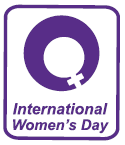Women manage the cheap, small projects: new research on International Women’s Day

Women have an important part to play in all economic activity, but are still under-represented in project management. The latest Arras People Benchmark Report shows that the proportion of UK project managers that are women remains under 30%, although it has increased slightly over the past year.
Research by Lisa Henderson and Richard Stackman cites a similar figure: PMI membership is made up of 70% men and 30% women. Henderson and Stackman have published research recently on the role that gender plays in project management. They surveyed 563 project team members and came up with some interesting conclusions.
- Female project managers are almost twice as likely to be on projects costing $1m or less. “This finding suggests that female team members… experience less opportunity to work on larger, more complex projects that cost more,” explain the authors.
- Female project team members are less likely to work at the same location as their project managers.
- Female project team members are 9 times more likely to work with female project managers than male project team members.
The researchers write:
“Female project managers and team members may be locked in a vicious cycle of project assignments on lower-cost, smaller projects, leaving them more marginalized both geographically and culturally from power-gaining experiences in comparison to their male counterparts…[T]he historical “glass ceiling” for women…exists within contemporary project management as well.”
In short, women are segregated on to smaller, cheaper projects and spend more time working on virtual teams than men.
This is not good for women’s careers as project managers. It’s not good for organizations, which are missing out on top talent by sidelining women on to those smaller, cheaper projects with unconscious (or conscious) bias.
Over the last 100 years International Women’s Day has done a lot to champion the cause of working women, but it’s not enough. We all – men and women – need to be supporting equality in the workplace. Ask for assignments to larger projects. Men, ask the women in your team to take on bigger projects. If you don’t feel you or your colleagues are up to it, produce a personal development plan to help you get there.
Every year, 8th March should be a prompt to you and your organization: what are you doing to support your career goals and those of the women in your team?
—
This article was based on research by Linda S. Henderson and Richard W. Stackman (2010). ‘An Exploratory Study of Gender in Project Management: Interrelationships with Role, Location, Technology, and Project Cost’. Project Management Journal, Vol. 41, No. 5, 37-55.
